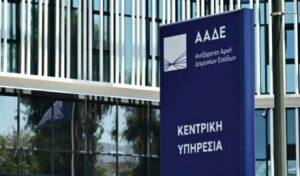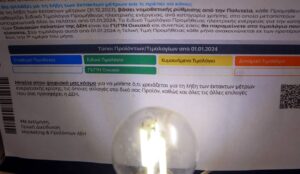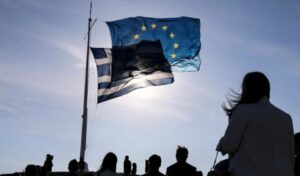The German public television ARD’s first channel “weaves praise” for Greece in its report, referring to the progress made by the Greek economy as it has left the crisis behind, while also mentioning the investment opportunities presented in the country. The report, which carries the characteristic title “Greece: from problem child to model student” and is republished by ANA-MPA, also refers to the “lesson” that Germany can learn, both in the field of digital transformation and in mentality.
“Sun, beach, blue sea and beautiful small islands – these characterize Greece. From an economic perspective, one could say these are the country’s assets, what brings money to Greece. 30% of its GDP depends on tourism,” says Christian Kopf, head of bond markets at Union Investment. “Greece is a small tourism-oriented economy. It’s a bit like the Florida of Europe. Many people are moving there because it’s simply a nice place to live.”
“Something is developing there – What we can learn from Greece”
Kopf still remembers the time when Greece – despite its beautiful location and many sunny days per year – was on the brink of national bankruptcy. “Greece experienced a major economic crisis in 2011. At that time, the government had taken on very high levels of debt, but also had a very high budget deficit and investors were no longer willing to finance it,” the report states, noting that Germany is the largest investor in the country. “After a payment default and many emergency loans, the country is in a better position again. The state has restructured its budget and can borrow money from capital markets again on more favorable terms. With these funds, Greece has invested significantly in the country’s infrastructure and thus attracted foreign investors,” Marion Wendt, head of the Athens office of the Konrad Adenauer Foundation (KAS), tells ARD, citing as an example the German pharmaceutical company Boehringer Ingelheim, which represents, as he says, 1% of GDP, with German companies collectively representing about 5% of GDP. “Germany is the largest investor in the country with 20%. Italy follows closely,” Mr. Wendt adds, noting that besides tourism, there are other interesting future markets in Greece, such as digitization, energy and the health sector.
“Something is developing there,” as Greece’s economy is developing overall, with 2.3% in 2024, he says characteristically, explaining that the growth is due to the tourism boom, but not only to that. “For some time now, Greece has become known as a transit hub. With the port of Piraeus, we have a logistics hub between East and West and we can thus serve the new markets towards the Balkans very well. Greece is the gateway to Europe and the Chinese have cleverly exploited this,” emphasizes the head of KAS in Athens, reminding: “During the public debt crisis, Greece’s creditors, including state creditors, pressured Greece to privatize the port of Piraeus. In retrospect, it was somewhat short-sighted to give the strategically important port to Chinese hands. The Chinese now use the port as a gateway to southern Europe to transport their exports.”
“What can we learn from Greece? Just do it!” notes the ARD reporter, speaking of the return of investors and massive tourist arrivals, highlighting last year’s record of 40 million arrivals. “The keyword is: digitization,” emphasizes Marion Wendt, explaining that the digital transition that has taken place in recent years in Greece “has helped significantly in combating undeclared work and tax evasion” as “every citizen can pay for anything, anytime with a card and, if this is not possible, they are not obliged to pay, which certainly prevents fraud and leads to additional tax revenue.” Additionally, “Greeks have greater trust in the private sector than in the state and quite an open attitude towards new things. Their mentality is, let’s start and we’ll solve problems along the way. Germans always think about the process first and, if the process is not 100% correct, they don’t even start. They could learn something from the Greeks in this regard,” suggests Marion Wendt.




